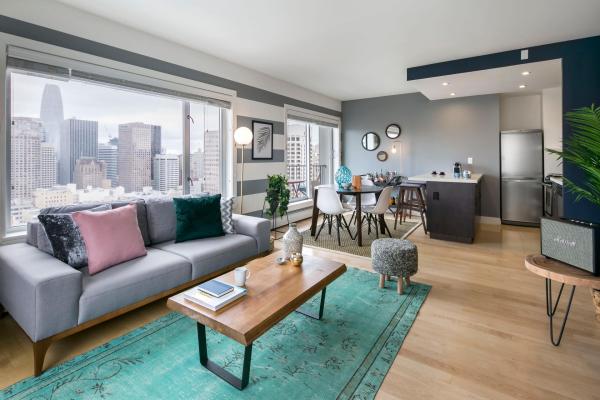
Alex Chatzieleftheriou founded Blueground in 2013 after being frustrated with the dearth of short-term furnished apartments in Europe. He had been traveling as a consultant for McKinsey, living almost exclusively in hotel rooms for months.
“One time the company had to pay up to €15,000 for a hotel room in Amsterdam. And there wasn’t enough space nor a kitchen to cook,” he said. “I tried renting apartments for a month or more. But it was difficult, and landlords weren’t open to buying furniture. So I had created a business that would solve my problem.”
Some years later, at the height of the pandemic, business was booming for his startup’s category – short-term, furnished apartment rental companies – as people roamed the world while working from home.
Now that many employers have called workers back to offices, the demand for temporary housing has cratered.
Some of his competitors didn’t survive. Zeus Living and WanderJaunt shut their doors and returned the keys. Some became acquisition opportunities for Blueground. In 2022, the company gained a strong foothold in Latin America by buying Tabas, an operator of over 9,0000 furnished apartments in Brazil. Within months, Blueground snagged Travelers Haven, a 15-year-old business that provides on-demand housing to workers in nearly 20,000 cities throughout the United States. In 2023 it picked up Nestpick, a marketplace for furnished apartment operators, like Kasa and Placemakr, giving customers access to an additional 18,000 apartments.
Blueground now operates a global network of move-in ready homes for stays of a month or more, and has raised $45 million in Series D funding from new investor Susquehanna Private Equity Investments along with other backers, including WestCap, Chatzieleftheriou told TechCrunch. The New York-based company said it also secured a debt facility from Barclays with participation from Morgan Stanley, Deutsche Bank and HSBC, which replaced and upsized the $40 million of debt Blueground obtained from Silicon Valley Bank in 2021.
Blueground leases apartments in popular neighborhoods and then equips and furnishes them for renters. The company currently manages 15,000 apartments in 32 markets in 17 countries. In addition to taking out its own leases, Blueground has recently introduced a franchise that partners with local operators in Japan and Thailand and lists units of third-party operators on its platform.
The company didn’t reveal its new valuation, but Chatzieleftheriou said that the company’s value has increased since its previous round. That valuation was reportedly $750 million after raising a $140 million Series C in September 2021.
It’s no secret that the fundraising environment has been extremely challenging for late-stage companies, especially those in the proptech sector, which has been battered by rising interest rates.
Chatzieleftheriou told TechCrunch that his company’s fast growth and near-profitability helped convince investors to fork over the latest funding.
Sales jumped by 70% to $560 million in 2023 over 2022’s $300 million in gross revenue, Chatzieleftheriou said. Net sales margin—that’s after it pays landlords for leases—is approximately 35%, he added and he expects Blueground to have positive cash flow in 2024.
While further acquisitions seem likely, given Chatzieleftheriou’s prediction of industry consolidation, the immediate focus is integrating these recent purchases. The new funding will go towards market expansion, technology investments, and possibly the ultimate financial goal: an IPO.









